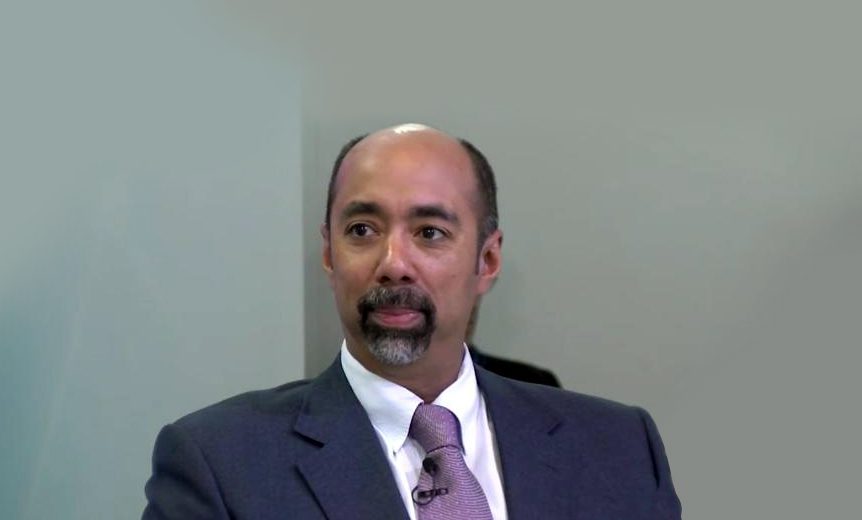The gas-to-energy project proposed by the Government of Guyana has the potential to not only create new industries and transform the economy but also represents the most environmentally sustainable option currently available to the country. This is according to Roger Kranenburg, an international executive who specialises in the energy, electric utility, and telecommunications industries. Kranenburg declared that the pros of the project far outweigh the cons.
The gas-to-energy project will utilise associated natural gas from ExxonMobil’s Liza field with the pipeline passing through Crane and other communities before being landed at Wales on the West Bank of Demerara where the power generation facility will be constructed.
The offshore pipeline will be connected to an underground pipeline onshore that will be 27 km long and 12 inches in diameter. It is expected to follow existing roads/canals within a corridor selected by the Government.
“There are pros and benefits in terms of economic wellbeing and safety and health of the country but also from an environmental perspective, I think it is the most environmentally friendly path for the country,” Kranenburg said, during a media webinar organised by OilNOW on Thursday, September 23. “The alternative, which I really don’t think is an alternative, is that you stymie the economic well-being of the country.”
Gas-to-energy project is ‘absolutely a step in the right direction’ – Rystad Energy VP
He said the objective would be to provide a utility and use less energy. “I don’t think it is fair for the world to ask Guyana to stymie its economic wellbeing and development and gas-to-shore is a clear winner in my opinion. It has so many benefits to Guyana.”
The international expert noted that there is low economic viability for selling the gas on the international market since the United States has already monopolised it to a large extent. It therefore makes better sense, he posited, to bring the gas to shore and use it for the benefit of the citizens and the country.
“You can use some of it to push back into the well to push more oil out but at certain points, it is essentially a waste product at this point, if you can consider it as such,” he said. “You definitely do not want to flare it. You want to minimise flaring as much as possible, both in terms of its economic value as well as the environmental impact. You will definitely want to bring it to shore. It is very viable to pipe it to shore and it can be done very safely.”
One of the most tangible benefits of the project would be the provision of cheap and reliable energy. For a country that has been plagued for decades with unstable, unreliable, and high electricity costs, Kranenburg said that the gas-to-energy project can prove to be the most transformational project in Guyana’s history.
He noted, “I would also make the case that one of the most critical things in an electric system is reliable electricity. It seems one of the big issues in Guyana is generator trips, old generators that are like old cars. If we are replacing those with modern turbine technology, many of those turbines will be operating offshore and one of the main things about turbines is that they are super reliable.”
He said they are used in the United States because of their reliability and efficiency, reiterating that there are huge benefits to a country that can have a reliable electrical system.
Aside from cheap and reliable energy, one of the gases that will come from the project is propane. Kranenburg believes that aside from benefitting households, this gas can also see the creation of new industries, which will significantly benefit the economy. Vietnam, he said, is a “wonderful example” of how gas-to-energy laid the foundation for a reliable energy system, which ultimately led to the building of a strong economy.
Guyana’s massive Gas-to-Energy project will deliver more than just cheaper energy – Economist
Moreover, as the world moves to adopt environmentally-friendly goals, electric vehicles are becoming the preferred option for many countries. Kranenburg said that with the gas-to-energy project and a reliable electricity supply, Guyana can become a leader and player in promoting the use of these types of vehicles.
“If you have a reliable electric system, then this can power your transportation system. That is another sort of savings so to speak because the crude is going to go off to the international market but if you don’t displace the current imports of refined petroleum, you are going to be purchasing that off the international market. Won’t it be a beauty where you are taking what is essentially a waste product today and displacing all of that money that you are sending out for refined petroleum?” he asked.
Kranenburg, a Guyanese by birth, has over 20 years of expertise and experience in strategy, technology research and development with new product introduction, business and venture development, policy development, advocacy, finance and commodities, and public speaking, including start-up and international ventures in the energy, electric utility, and telecommunications industries.



